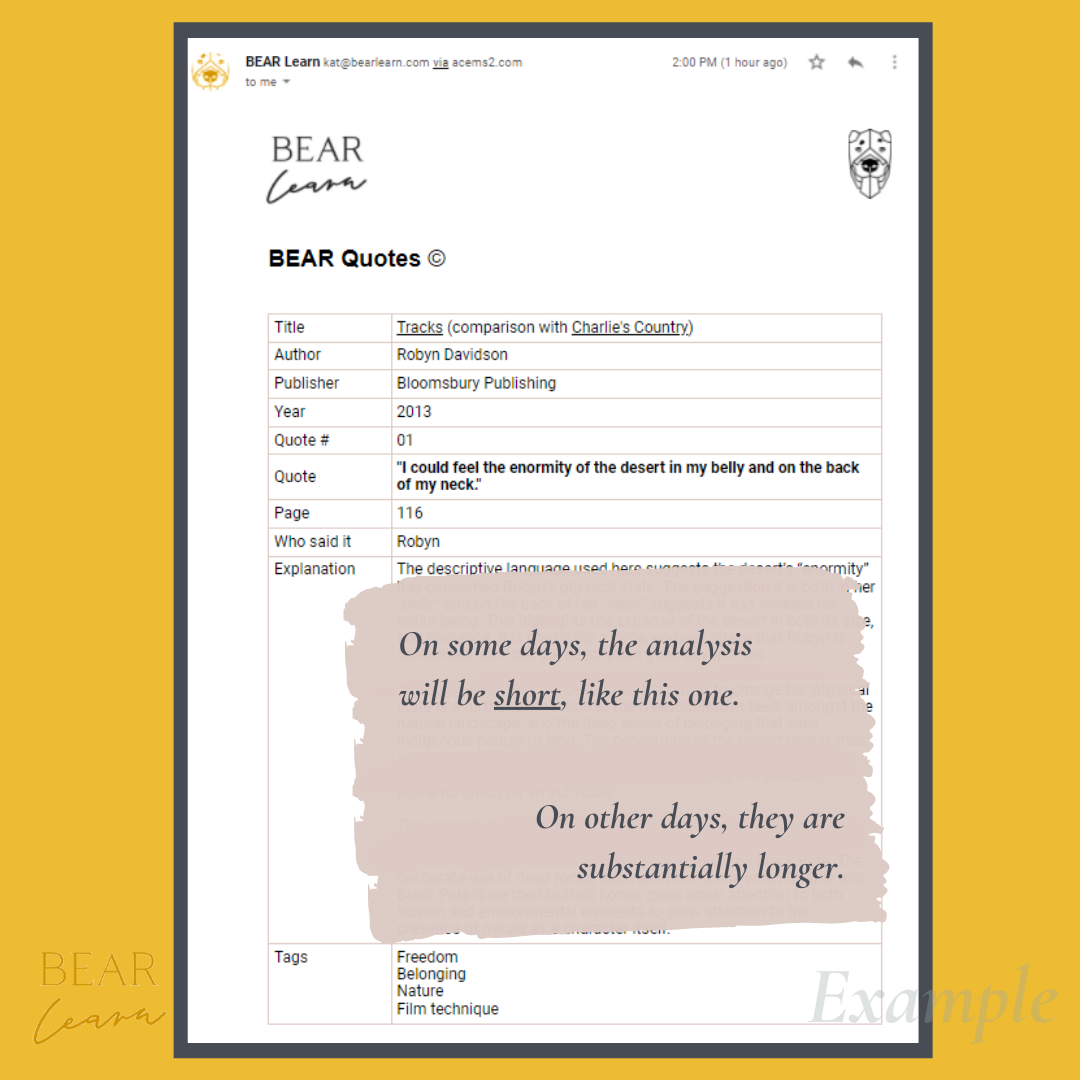My Store
Comparative - The Namesake and Reckoning Daily Analysis
Comparative - The Namesake and Reckoning Daily Analysis
Couldn't load pickup availability
| 🥳👏 Smart move! The VCE English Exam and your school SAC (School Assessed Coursework) require you to have and explain key quotes from your text. Lucky you've got BEAR Quotes Daily Analysis in your study kit 🚀 |
What you're getting
BEAR Quotes Daily Analysis Comparative for The Namesake (Jhumpa Lahiri, published by Fourth Estate, 2011), and Reckoning (Magda Szubanksi, published by The Text Publishing Company, 2015) - co-authored with Victorian teacher, Tahnee Dwyer
One (1) quote* with a detailed explanation will be sent to your email address daily for at least fifty (50) consecutive days.
*On some days, the ‘quote’ may refer to a form of metalanguage. This means that in addition to literal quotes from the text, this metalanguage or film technique is important to include in essay writing.
Receive BONUS quotes + analysis! BEAR Quotes Daily Analysis is much more than the ordinary study guide.
🙋 WANT the Quotes + Analyses ALL AT ONCE in a digital repository? Add this to your cart!
Text summaries from the 2020 VCAA Text List
Reckoning
While loved for her portrayal of the quintessential Aussie netballer ‘Sharon’, Magda’s own childhood experience was more like that of an outsider. Her immigrant experience, cross-cultural Polish–Scottish heritage, experience as a childhood tennis player and emergence as a ‘fat lesbian’ in a 1980s feminist setting stand her apart from most suburban ‘Sharons’. Even her childhood spent playing in the (car-less) streets and roaming the wilds of Croydon will be exotic to today’s young reader.
However, that which she feels sets her apart, her signifier as an outsider, is her father’s role as an assassin in the Polish resistance movement in World War II. Reckoning is a rich and complex autobiography awash with themes of family secrets and untold history, as well as documenting the rise of a form of comedy over the past 30 years that reflects Australian culture. Szubanski captures the defining elements of a situation or personality and can reveal, with warmth and compassion, the tragedy as well as the comedy in both the mundane and the exceptional.
The Namesake
For as long as he can remember, Gogol Ganguli has hated his name. Growing up in an Indian family in suburban America did not make it any easier for him to accept it. So, on his 18th birthday, he changes his awkward moniker by deed poll in the hope of casting it off along with the inherited values it represents. Gogol soon discovers, however, that his identity is bound up in much more than what he is called. No matter how hard he tries, he struggles to reconcile the tension that exists between his Indian heritage and his American values. It is this clash of cultures that is at the heart of this narrative, as well as the ways in which the members of the Ganguli family are shaped by their homeland and changed by the American soil on which they live.
Share










